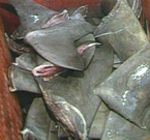
10 food festivals you'll want to know
Food festivals vary in every country and culture where food is celebrated, venerated and appreciated. Some festivals hold events that are sometimes fun and entertaining, ...
More


10 food festivals you'll want to know
Food festivals vary in every country and culture where food is celebrated, venerated and appreciated. Some festivals hold events that are sometimes fun and entertaining, ...
More

'no' to sharks' fin
Singapore-based supermarket chain, Cold Storage, will stop selling sharks fin and shark-related products. Cold Storage, which has 42 outlets across the country, ...
More

going to singapore to makan?
In Singapore, the locals can food-talk 24/7, and it’s understandable; the food offerings are endless! Fine dining to hawker fare, one can get a fever just thinking ...
More